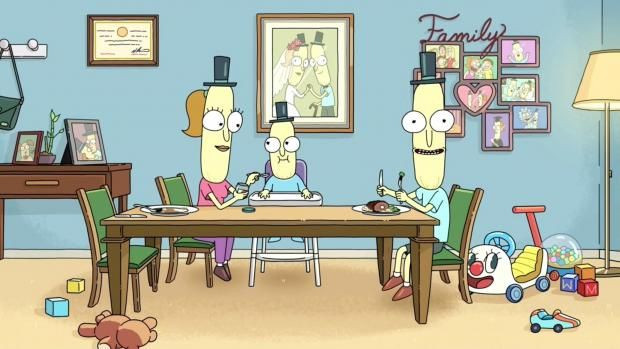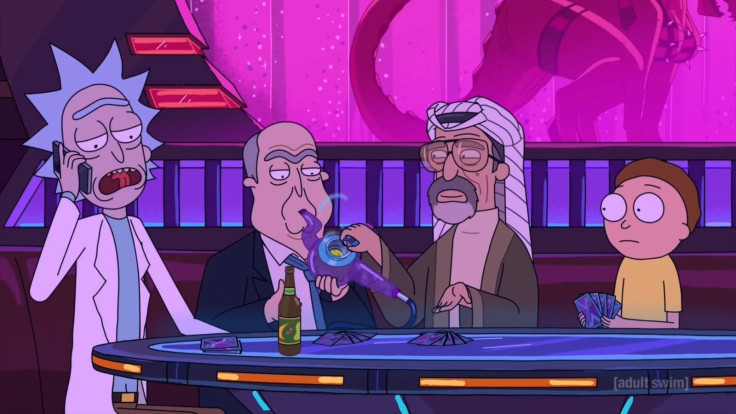Even if Rick can occupy the Oval Office and beat the United States president in single combat, he can’t defeat his family’s hard-won social stability, built over a season-length psychological gauntlet. Rick and Morty’s Season 3 finale, “The Rickchurian Mortydate,” doesn’t end with Rick in prison or mortal danger, but it does diminish his power.
Each member of the Smith family had a moment of self-actualization in Rick and Morty Season 3. Summer killed mutants and got married in “Rickmancing the Stone.” In “The Whirly-Dirly Conspiracy,” Jerry reckoned with his own limitations. Beth discovered power and freedom in “The ABCs of Beth.” Morty conquered insecurity and the world of high-finance in “Rest and Ricklaxation.” Collectively, the family shed the dependencies, weaknesses and insecurities that gave Rick complete control over their lives. Rick’s nihilism found its counter in a self-selected family order. Having faced life’s cosmic meaninglessness, they chose a meaning of their own.
The outrageous freedom of Rick’s lifestyle — abandoning whole realities and moving on at will — has impressed on him the belief that attachment is weakness. But Rick isn’t as immune to those human-level conceits as he’d like to believe. His big picture outlook
“There’s infinite timelines, Morty. Why would I stay in the one where I trashed the White House, became an enemy of America and the lowest status character in my idiot family?” Rick asks at the end of “The Rickchurian Mortydate.” Nevertheless, he stays, even enduring the Smith family’s laughter at his expense.
“The Rickchurian Mortydate” expands its critique of Rick to the entire United States. Both Rick and the President are first and foremost obsessed with imposing their will on the universe. “I’m President of America, which is basically the world, but you didn’t hear that from me,” the President tells the Presidentress of the Mega-Gargantuans. Unlike every other country on Earth, for which United States hegemony is a global reality, America itself is incapable of acknowledging any limitation on its unlimited, self-designated mandate. Sound familiar? Interrelations built on more than the assertion of dominance can be frustrating and limiting, but otherwise you end up like Rick: alone and angry.
And don’t pay any mind to Season 3’s self-deprecating sitcom coda. “In many ways things will be like Season 1, but more streamlined,” Beth says, summarizing the entire season’s action as altering only minor relational parts of the show. “Now Jerry and I are happily married parents. And the idea that I was motivated by a fear of you leaving can be eschewed.”
But while those evolutions in the Smith family dynamic may seem like small potatoes, they hint at Season 3’s essential message: there is no meaning and meaning can be constructed. Rather than opting out of human life — Rick’s choice — the Smith family has embraced life’s minutiae and found meaning in each other as well as in their own self-actualizations.
Asked by Entertainment Weekly whether Rick and Morty’s “character-driven melodrama” is meant to be taken seriously and “if there is permanent growth and consequences” or sitcom regression to the mean, co-creator Dan Harmon offered a revealing answer:
“This is going to be the most pretentious answer, but I mean it with the smirk I’m delivering it with: You just described life, brother. And I prefer it that way because [the show] has the maximum shelf life and the minimum shark-jumping possibility if you just commit to that fact — which is that sometimes you can’t tell if your best friend really turned a new leaf or he’s just a serial leaf-turner. You don’t know among the real people of your world when their “story” has changed, when they’re really growing, or just engaged in some new cycle or habit.”
Rick and Morty Season 3 is about those cycles within our lives that bring us to both new and familiar places. Just look to Mr. Poopy Butthole in the after-credits scene: rather than wild adventures, he got married, had a baby and got his “G-E-E-E-D.” By tackling incremental, human accomplishments, Mr. Poopy Butthole has come to a better place than Rick, who’s left with nothing to fall back on after demeaning and abandoning the parameters of social life. “What did you do while you were waiting?” Mr. Poopy Butthole asks us. “Hopefully you didn’t just fuck around and waste your life.”

When Rick promised “the darkest season yet” in the Rick and Morty Season 3 premiere, he wasn’t aware how completely that reckoning would fall on his shoulders. After two seasons of Rick’s indomitability, Season 3 articulated his weakness. In living as a quasi-god — “I’m Dr. Who in this motherfucker,” he tells the Joint Chiefs of Staff — Rick has foregone those strengths humans construct together.



















